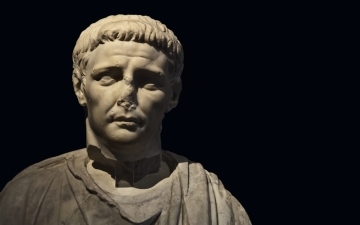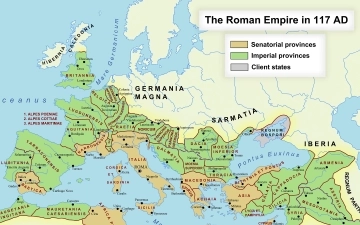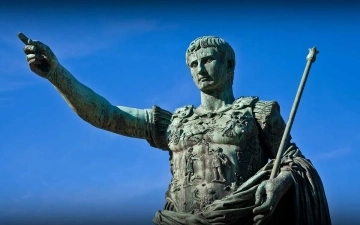Terms & Conditions
Welcome to RomanEmperors.com. Please carefully read the following Terms and Conditions before using our website. By accessing or using our site, you agree to comply with and be bound by these terms. If you do not agree with any part of these terms, please refrain from using our services.
1. Content Disclaimer: RomanEmperors.com provides historical information for educational and informational purposes only. While we strive for accuracy, we cannot guarantee the completeness or accuracy of the content. Users should verify historical information independently for academic or research purposes.
2. Copyright and Usage: All content on this website, including text, images, and multimedia, is protected by copyright laws. Users may not reproduce, distribute, or use any content without written permission from RomanEmperors.com.
3. User Conduct: Users must use the website in a responsible and lawful manner. Any misuse, including but not limited to hacking, spreading malware, or engaging in abusive behavior, is strictly prohibited.
4. Privacy Policy: Please review our Privacy Policy to understand how we collect, use, and protect your personal information when using our website.
5. Third-Party Links: RomanEmperors.com may contain links to third-party websites. We do not endorse or take responsibility for the content, privacy practices, or accuracy of information on these external sites.
6. Modifications to Terms: RomanEmperors.com reserves the right to modify or update these Terms and Conditions at any time without prior notice. Continued use of our website following changes constitutes acceptance of the modified terms.
7. Disclaimer of Liability: RomanEmperors.com is not liable for any direct or indirect damages resulting from the use of our website. Users access the site at their own risk.
8. Governing Law: These Terms and Conditions are governed by and construed in accordance with the laws of the US, and any disputes will be subject to the exclusive jurisdiction of the courts in the US.
By using RomanEmperors.com, you agree to abide by these Terms and Conditions. If you have any questions or concerns, please contact us at info@bible-history.com. Thank you for visiting our website and for your understanding of these terms.
Related Posts
Claudius: The Unexpected Emperor and His Surprising Achievements
In the annals of Roman history, the name Claudius stands out as a remarkable story of an unexpected emperor who defied the odds and left behind a legacy of significant achievements. Often underestimated due to physical disabilities, Claudius rose to power and proved to be a capable and innovative ruler....
Read MoreThe Colossal Footprint: Exploring the Roman Empire at its Greatest Extent
The Roman Empire, a name that evokes images of gladiatorial combat, sprawling aqueducts, and stoic emperors, wasn't just a powerful state; it was a colossal empire that stretched across continents. But how vast was its reach at its zenith? This post delves into the greatest extent of the Roman Empire,...
Read MoreMatthew Henry’s Concise Commentary: A Timeless Guide to Biblical Understanding
Matthew Henry’s Concise Commentary on the Whole Bible is one of the most enduring and widely used resources for Bible study. Known for its clarity, depth, and spiritual insight, this commentary distills the essence of Matthew Henry’s original six-volume work into a shorter, more accessible format. It has been cherished...
Read MoreBonsai Trees: The Art, Care, and Beauty of Miniature Trees
Bonsai trees are more than just plants—they are living works of art, shaped and nurtured over time to reflect nature’s beauty in miniature form. Originating from ancient Asian traditions, bonsai trees symbolize harmony, patience, and balance, making them a meaningful and meditative hobby for plant lovers worldwide. Whether you're a...
Read MoreFrom Ancient Rome To Today: 4 Games Played By Emperors And Their Modern Equivalents
In history, Ancient Rome had rulers who enjoyed games that involved intelligence and risk-taking. The interesting part is that some of these games have now evolved to their modern versions that still entertain people. When we look at the Ancient Roman history of emperors having fun, most of them went for...
Read MoreThe Rise and Fall of Julius Caesar: A Tale of Ambition and Betrayal
Julius Caesar, a name that echoes through the corridors of history as one of ancient Rome's most prominent and controversial figures. His life, marked by ambition, military genius, and ultimate betrayal, is a tale that continues to captivate and intrigue. The Ascent of Ambition Julius Caesar was born in 100 BCE into...
Read More






















